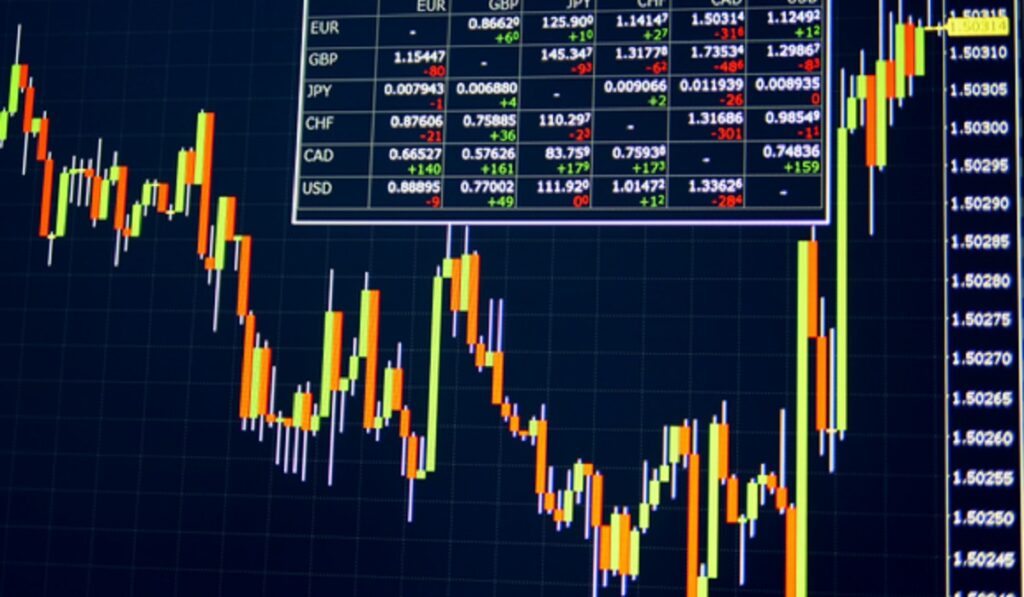Exploring Index Futures: Definition, Types and Strategies for Profit

Index futures are an integral component of financial markets, offering investors the potential to profit from market index movements. New traders should learn more about index futures’ operations before diving in – this article offers a complete overview of index derivatives including their types, definitions and how best to take advantage of them for optimal trading success.
Index Futures are standard derivative contracts which permit traders to speculate about future movements of an index of stock markets.
Index Futures are distinguished by several key features, including margin requirements and standard contracts.
Types of Index Futures Include:
a. Broad Market Index Futures (BMIF) are contracts linked to major stock market indices representing overall sentiment such as S&P 500 or Dow Jones Industrial Average ; whilst b. Sector Index Futures (SIF) track specific market sectors like energy, technology finance or healthcare while International Index Futures (IIF) offer global exposure through index derivatives linked to foreign stock indices like FTSE 100 or DAX 30 etc b). c.International Index Futures provide exposure through derivative linked derivative derivative contracts linked with foreign stock indices like FTSE 100 or DAX 30 as this gives global access.
How Index Futures Work: a. The Role of Futures Exchanges: Index futures are traded through regulated futures markets where buyers and sellers meet to open positions on futures futures contracts. b. Understanding Contract Specifications including contract size, tick values, margin requirements and trading hours as well as c. Price Determination by factors including supply/demand dynamics as well as interest rates/market sentiment/price determination factors which affect price determination for index futures contracts.
Trading Index Futures Can Bring Many Advantages: Diversification: Index Futures is an invaluable way for investors to spread risk across sectors or markets with exposure through index futures, while offering traders opportunities for large positions at reduced capital investments; these futures also allow traders to manage risks more effectively through hedge positions and risk mitigation strategies.
Index Futures Strategies: Directional Trading: This involves betting on the direction of an index by taking either a long (buying), or short (selling), position. Spread Trading and Arbitrage Trading utilise price differences between index futures contracts such as intermarket spreads or calendar spreads to make profit and achieve risk-free profits respectively.
Risks and Considerations for Index Futures: Index futures are subject to high market volatility, which may cause either significant gains or losses. Leverage risks: Although leverage can magnify profits it also magnifies losses; proper risk management must therefore be practiced. Market Analysis and Education – Gaining knowledge in fundamental and technical analysis will assist traders in making better trading decisions.
Index futures provide traders with an effective means to diversify their portfolios and manage risks, while taking advantage of potential investment opportunities by becoming familiar with index futures trading and developing specific trading strategies. To be successful at trading index futures successfully you must perform an in-depth market analysis, manage risks properly, and stay abreast of market developments.

Before engaging in futures trading, it is recommended to speak to a financial adviser and investigate its risks.
Note: Please remember this article serves only educational purposes and should not be seen as financial advice or recommendation. Trading derivatives entails inherent risks; before entering any market individuals must carefully assess their personal financial circumstances and tolerance for risk before investing any time or capital into trading derivatives.
Staying current with market news, economic indicators and geopolitical developments that might impact performance index is also crucial, enabling traders to make informed decisions and adapt their strategies appropriately.
Successful futures trading requires an in-depth knowledge of risk management. Risk managers must prioritize this aspect of trading by setting stop-loss orders, managing positions, and diversifying portfolios to prevent emotional market swings from making emotional trading decisions based on short term fluctuations. Stay disciplined by sticking to your trading plan as this will keep emotional decisions under control and give yourself time for profitable trading results.
Technical analysis tools and indicators allow traders to identify entry and exit points more precisely. Chart patterns, moving averages and oscillators as well as trend lines are used by traders when making trading decisions based on historical data.
Long-term trading success requires constant learning and improvement of one’s trading abilities. For maximum effectiveness, traders must dedicate sufficient time and energy to understanding futures market strategies and dynamics – online courses, webinars, financial literature or connecting with experienced traders are great resources to gain more insights and refine trading techniques.
Index futures trading can provide an exciting way to profit from market index performances. When engaging in futures trading it is vitally important that one remains vigilant by understanding risks, applying appropriate risk mitigation techniques and maintaining up-to-date knowledge to increase chances of success in this highly exciting arena. Staying informed, developing effective strategies and honing your trading skills all help maximize chances of being successful within this enthralling world of index futures trading.
Note: Please keep in mind that this article’s information should only be taken as educational and not financial advice. Trading derivatives is associated with inherent risks; to assess these properly before entering any market it’s wise to speak to an advisor to assess suitability for risky investments such as derivatives.






